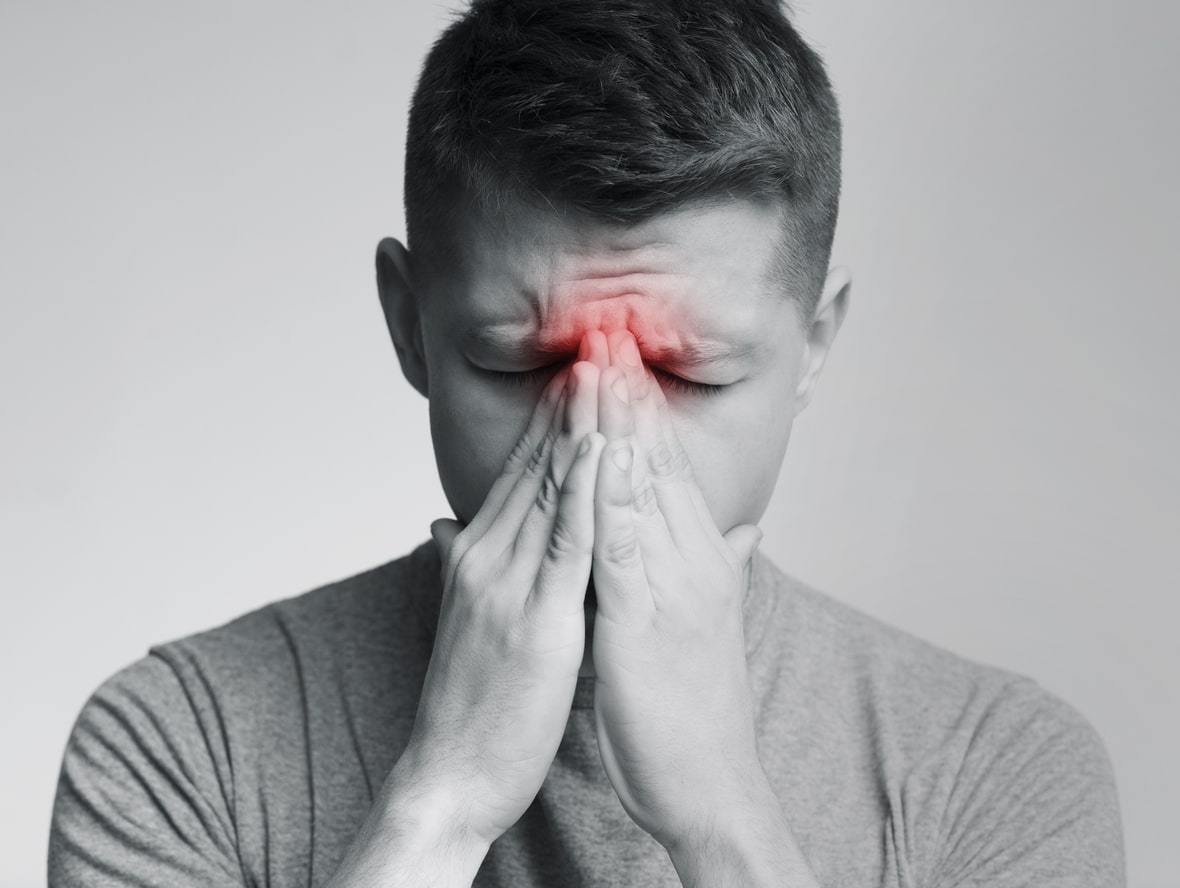When you’re dealing with congestion and facial pressure, it’s natural to blame a lengthy cold, but your symptoms could result from chronic rhinitis or sinusitis. Let’s look at each of those and how you can identify them to find fast relief.
What Is Chronic Rhinitis?

Chronic rhinitis is an ongoing inflammation of the nasal passages. It causes symptoms including:
- Stuffy or runny nose
- Sneezing
- Cough
- Postnasal drip
Chronic rhinitis can be allergic, triggered by pollen, dust or pet dander, or nonallergic, caused by irritants like smoke, weather changes or certain medications.
What Is Sinusitis?
Sinuses are air-filled cavities around your nose, forehead and eyes. Sinusitis, also called a sinus infection, occurs when something inflames the sinuses, causing a blockage. Symptoms may include:
- Postnasal drip
- Thick, discolored nasal discharge
- Stuffy nose
- Facial pressure or pain (especially around the cheeks, eyes and forehead)
- Pain or pressure in the upper back teeth
- Bad breath
- Cough
- Headaches
Sinus infections can arise from colds, flu, allergies and other viral and bacterial infections.
How Do I Tell the Difference?
The best way to tell the difference between rhinitis and sinusitis is to look at the symptoms. For example, pain in the upper back teeth is a common symptom of sinusitis, because the roots of the tooth touch the sinuses, but it’s less common in rhinitis cases.
You can also look at what’s causing your symptoms. Sinus infections usually arise after prolonged inflammation from allergies or infections, but rhinitis can pop up spontaneously after quick exposure to dust or smoke.
What Are My Symptom Management Options?
You can manage sinusitis and rhinitis similarly. Try a few of the following home remedies:
- Nasal irrigation. Rinse the nose and sinuses out with a saline solution. Tilt your head and slowly pour the solution through one nostril and let it drain out the other side. Blow your nose into a tissue after doing both sides.
- Steaming. Breathe in hot steam to humidify your nose and sinuses and loosen mucus. Fill a bowl with hot water, sit over it with a towel and breathe deeply. A hot shower with a towel under the door is another good option.
- Drink plenty of fluids. Drinking plenty of fluids helps thin mucus and clear congestion. Drink eight glasses of water or Legendary Life Juice Bar beverages daily.
In addition to home remedies, cold and flu or allergy medication can help minimize congestion. If your sinusitis or rhinitis is long-lasting, you should schedule an appointment with Ear, Nose & Throat Associates to go over long-term treatment options like Balloon Sinuplasty, Functional Nasal Endoscopic Sinus Surgery or prescription medications.